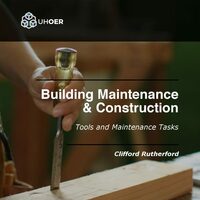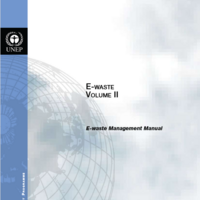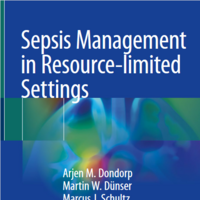Search
Books+
Searching 1,73 books
Search related to the career Biomedical Equipment Technician
Routine Inspections in Medical Equipment: Importance
1. Maintaining Safety: Routine inspections play a crucial role in ensuring the safety of medical equipment. Regular checks help identify any potential hazards or malfunctions that could compromise patient safety. By addressing these issues promptly, healthcare providers can prevent accidents, injuries, or adverse events.
2. Ensuring Accuracy: Medical equipment, such as diagnostic devices or monitoring systems, must provide accurate results for effective patient care. Routine inspections help verify the accuracy and precision of these instruments. Any deviations or inaccuracies can be detected and corrected, ensuring reliable diagnostic information and treatment decisions.
3. Prolonging Equipment Lifespan: Regular inspections help identify wear and tear, damage, or deterioration in medical equipment. By detecting these issues early on, healthcare providers can take preventive measures, perform necessary maintenance, or schedule repairs. This proactive approach helps extend the lifespan of the equipment, reducing the need for costly replacements.
4. Compliance with Regulations: Medical equipment is subject to various regulations and standards to ensure quality, safety, and efficacy. Routine inspections help healthcare facilities comply with these regulations, such as those set by government bodies or accreditation agencies. By adhering to these standards, healthcare providers demonstrate their commitment to patient care and maintain legal compliance.
5. Minimizing Downtime: Equipment breakdowns or malfunctions can disrupt healthcare services, leading to delays in patient care and potential financial losses. Routine inspections help identify potential issues before they escalate into major problems. By addressing these concerns proactively, healthcare providers can minimize equipment downtime, ensuring uninterrupted service delivery.
6. Enhancing Performance: Regular inspections allow healthcare providers to assess the performance of medical equipment. By monitoring key performance indicators, such as accuracy, precision, or response time, healthcare professionals can identify areas for improvement. This information can guide decisions regarding equipment upgrades, replacements, or staff training to optimize overall performance.
In summary, routine inspections are vital in medical equipment to maintain safety, ensure accuracy, prolong equipment lifespan, comply with regulations, minimize downtime, and enhance performance. By conducting regular checks, healthcare providers can provide high-quality care, reduce risks, and optimize the use of medical equipment.
Source: Various AI tools
Watoa huduma ya afya
Books tagged healthcare providers
Uhandisi
Books tagged engineering
Searched in English.

























